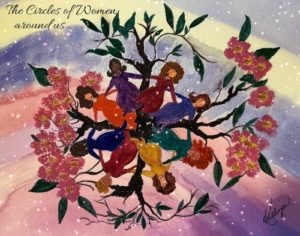 A few days from now, I am scheduled to receive a new kidney. The “red letter day” comes after five years of waiting on the ominous national transplant list, enduring eight hours of dialysis every day and wondering what my future would hold. Once or twice I gave up hope, knowing that 103,170 Americans (as of November 2016) were waiting with me on that list, that on average over 3,000 new people are added to the list each month and that 13 people will die each day while waiting on a life-saving kidney transplant.
A few days from now, I am scheduled to receive a new kidney. The “red letter day” comes after five years of waiting on the ominous national transplant list, enduring eight hours of dialysis every day and wondering what my future would hold. Once or twice I gave up hope, knowing that 103,170 Americans (as of November 2016) were waiting with me on that list, that on average over 3,000 new people are added to the list each month and that 13 people will die each day while waiting on a life-saving kidney transplant.
But this is not about me and my kidney. This is about the Church doing what churches should do as communities of faith. This is about what it looks like for the Church to stand apart in compassion, caring and love. This is about what is tangible and what is imperceptible, what is seen and what is unseen.
This is about my current church and my former church holding me up throughout the long, grueling journey toward a transplant.

Watercolor art by Kathy Manis Findley
These two churches gave generously through my transplant fund to help defray some of the enormous costs for the surgery and post-transplant expenses. They prayed without ceasing for me. They spoke words of hope and encouragement to me a hundred times over. They lifted my spirits, shared laughter and tears, and helped me feel brave when I felt like giving up.
Most importantly, they reminded me all along the way that I am God’s beloved daughter, that God is watching over the entire process and that I should always remember where and in whom I place my hope.
The part of this that so inspires me is that the Church – manifested in the two churches I call my own – is not only doing the tangible things I can see and hear, but also things that are imperceptible to me. It prompts me to think of how the Apostle Paul so eloquently describes the Church’s ministry and then names what they share in community as “a treasure in earthen vessels”:
… this extraordinary power belongs to God and does not come from us. We are afflicted in every way, but not crushed; perplexed, but not driven to despair; persecuted, but not forsaken; struck down, but not destroyed …
So we do not lose heart. Even though our outer nature is wasting away, our inner nature is being renewed day by day. For this slight momentary affliction is preparing us for an eternal weight of glory beyond all measure, because we look not at what can be seen but at what cannot be seen; for what can be seen is temporary, but what cannot be seen is eternal (2 Corinthians 4:7-9;16-18, NRSV).
What this pair of churches has done for me on this arduous journey has not always been visible, but rather has happened in the silent recesses of prayer – fervent and unceasing prayer. They have been my solid rock and firm foundation, carrying me through the rough patches and bringing me back to my eternal hope – a hope that on many days I almost forgot.
My two churches – First Baptist Church of Christ in Macon, Georgia, and New Millennium Church in Little Rock, Arkansas – wrapped their arms around me and reminded me that, more times than not, the Church really does stand apart and stands solidly with persons who have need.
“What these two churches have done for me on this difficult journey has not always been visible, but rather has happened in the silent recesses of prayer.”
This past Sunday was the last day to teach my Sunday school class for several weeks. It was a poignant morning and a poignant goodbye. My co-teacher began by sharing a quote from the American author S.A.R.K.: “The circles of women around us weave invisible nets of love that carry us when we’re weak and sing with us when we’re strong.”
After I shared my hopes and very present fears, my sisters formed a circle around me and placed their hands on me. Each one prayed for me in specific ways. It was an “invisible net of love” to be sure. I was literally and spiritually surrounded by love, by a community of sisters channeling to me the love and hope of God.
After the time of prayer, we joined hands to sing “May the road rise to meet you … And until we meet again, may God hold you in the palm of His hand.”
For many it may be a cliché, but not on this day: “There was not a dry eye in the house.” The Church was being the Church, standing apart to meet my deepest need.
